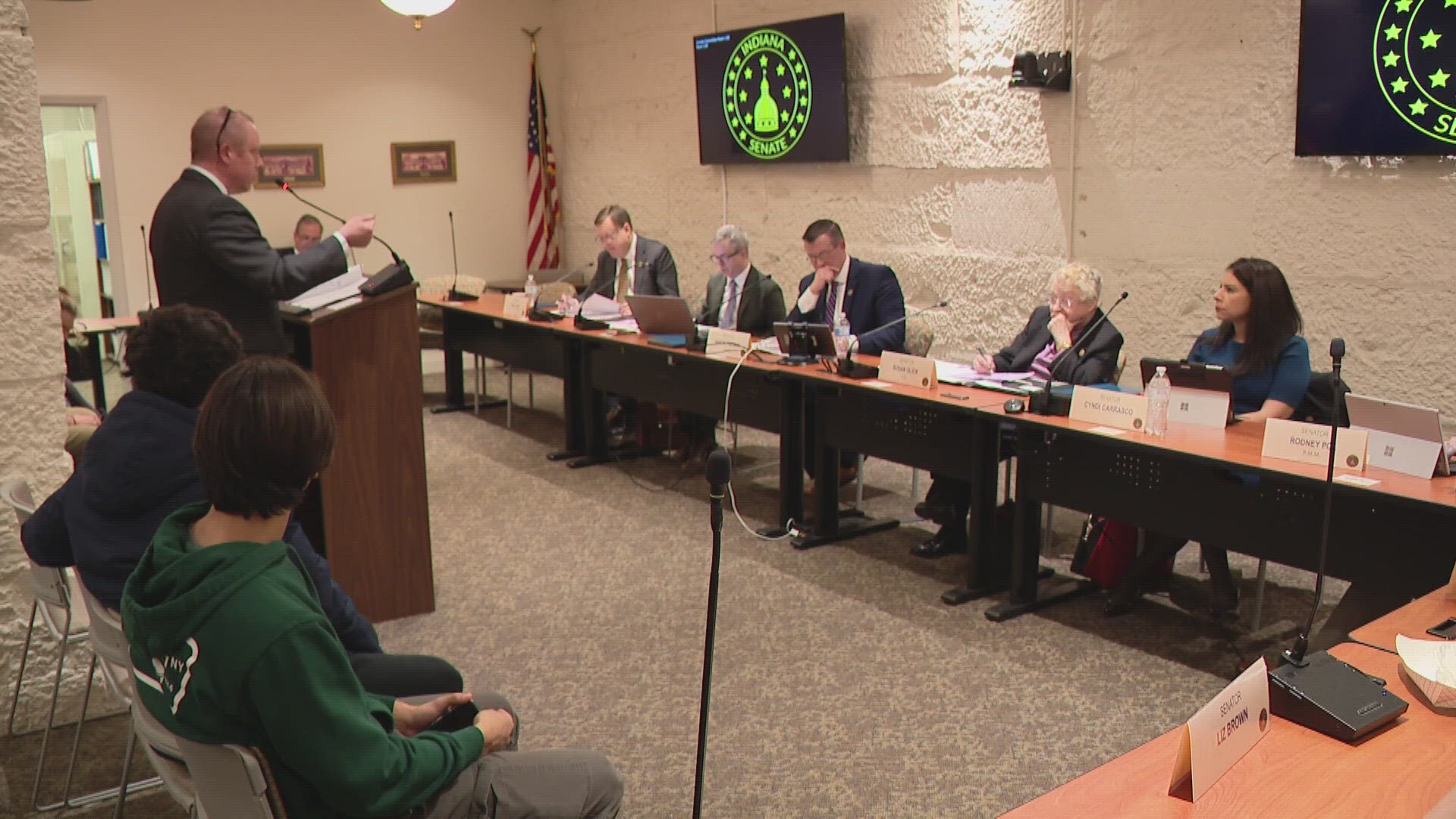INDIANAPOLIS — Indiana lawmakers heard about a proposed law Tuesday morning that would allow certain sex crimes to be prosecuted, no matter how much time has passed.
Under current laws, there are some time limits on how long a victim of sexual assault or child molestation has to come forward to seek justice.
Supporters of Senate Bill 151 say it gives victims time to find their voice, which can take years.
“I am now stronger and up to the challenge of being the voice of others who are not ready,” Carissa Siekman told lawmakers on the Senate’s Corrections and Criminal Law Committee.
Siekman said it took her years to find her voice after she said she was sexually assaulted on a high school class trip, more than 20 years ago.
Siekman used her voice to support SB 151.
“We must allow victims the time to care for themselves in order to address trauma that they’ve endured,” Siekman testified.
RELATED: Indiana bill requiring age verification to look at adult websites passes Senate, heads to House
Under the current law, victims of child molestation have until they’re 31 years old to report the crime.
If new DNA or a recording of the crime is discovered or there’s a confession, victims have five more years to come forward after the discovery.
For sexual assault not involving a deadly weapon, the statute of limitations is five years to come forward, with five years added again if new DNA, a recording or a confession comes up.
Supporters of SB 151 say removing those time limits at least allows for an investigation, if or when a victim wants to talk.
“Right now, there’s a gate in their way to even getting an investigation,” Courtney Curtis, with the Indiana Prosecuting Attorneys Council, told lawmakers, saying SB 151 would help victims of sex crimes.
Those who oppose it say the law is too broad because it eliminates the statute of limitations for all sex crimes.
“You could be prosecuted 50 years later for touching somebody in a way that qualifies as sexual battery,” said Joel Wieneke, with the Indiana Public Defenders Council.
Siekman knows the proposed law likely wouldn’t change anything for her, but that doesn’t matter. She wants to support a possible change for the survivors she knows will come after her.
“It’s not a political issue. It’s a human issue. It’s the right thing to do,” Siekman said through tears.
The committee didn’t vote on SB 151 Tuesday, saying they needed more time to look at it.

